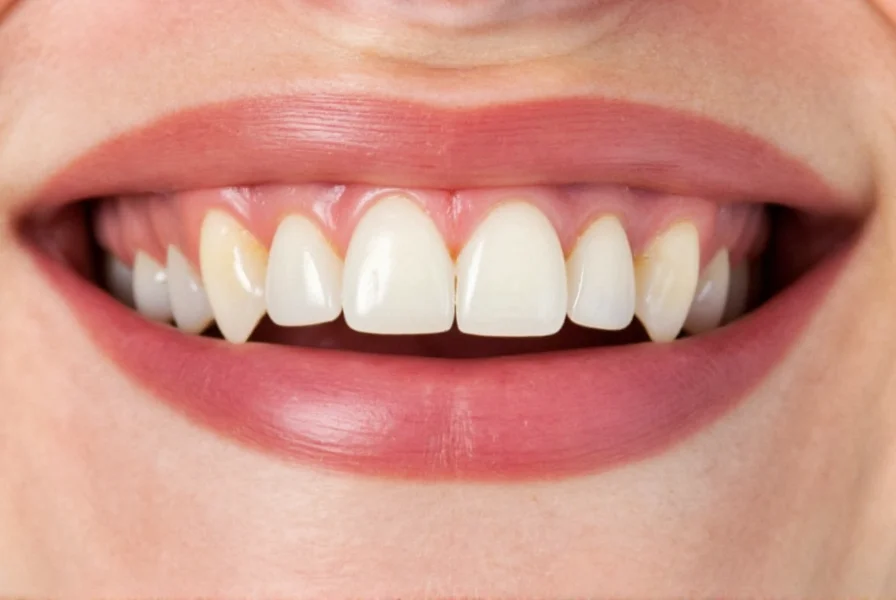For centuries, cloves have been used as a natural remedy for dental pain. When you're suffering from a sudden toothache and can't immediately see a dentist, understanding how to properly use this kitchen staple could provide valuable temporary relief while you arrange professional care.
The Science Behind Clove Toothache Relief
Cloves contain eugenol, which makes up 70-90% of clove essential oil. This compound has been scientifically validated for its dental benefits. Research published in the Journal of Dentistry confirms eugenol's effectiveness as a local anesthetic and antimicrobial agent. When applied correctly, eugenol numbs nerve endings in the affected area while reducing inflammation and fighting bacteria that may contribute to tooth pain.
Unlike over-the-counter pain medications that work systemically, clove's active ingredients provide targeted relief exactly where you need it. This makes it particularly valuable for temporary management of dental pain while waiting for professional treatment.

Effective Methods for Using Cloves on Toothache
Several application methods deliver eugenol directly to the painful area. Each has specific advantages depending on your situation:
| Method | How to Apply | Duration of Relief |
|---|---|---|
| Whole Clove | Rinse 1-2 cloves, place near affected tooth, gently bite to release oil | 20-30 minutes |
| Diluted Clove Oil | Mix 2-3 drops with 1 tsp carrier oil (olive, coconut), apply with cotton ball | 30-60 minutes |
| Clove Powder Paste | Mix powder with small amount of water, apply directly to painful area | 15-25 minutes |
| Clove Tea Rinse | Steep 2-3 cloves in hot water for 5 minutes, cool, swish for 30 seconds | 10-20 minutes |
Understanding Effectiveness and Limitations
Clove remedies work best for certain types of dental pain but have important limitations. They provide most relief for:
- Temporary pain from minor tooth sensitivity
- Discomfort after dental procedures
- Early-stage cavities before significant nerve exposure
- Mild gum inflammation
However, cloves won't help with:
- Severe infections requiring antibiotics
- Cracked teeth needing structural repair
- Advanced decay reaching the tooth pulp
- Impacted wisdom teeth causing swelling
When using cloves for tooth pain relief at home, remember they only mask symptoms. The underlying problem continues progressing without professional dental intervention.
Safety Guidelines for Clove Application
While generally safe, improper use of cloves can cause complications. Follow these safety recommendations:
- Always dilute clove oil before application (never use full strength)
- Limited to 2-3 applications per day to prevent tissue damage
- Avoid contact with gums for extended periods
- Discontinue use if you experience burning or increased pain
- Not recommended for children under 5 years old
Excessive use can cause chemical burns to oral tissues. A study in the Journal of Oral Rehabilitation documented cases where undiluted clove oil led to mucosal damage. If you have bleeding disorders or take blood thinners, consult your dentist before using clove remedies, as eugenol may increase bleeding risk.

When to Seek Professional Dental Care
Natural remedies like cloves serve only as temporary measures. Schedule dental care immediately if you experience:
- Pain lasting more than 24-48 hours despite home treatment
- Swelling in your face, jaw, or gums
- Difficulty opening your mouth or swallowing
- Visible holes or dark spots on teeth
- Pus or foul taste indicating infection
Delaying professional treatment for dental issues can lead to serious complications including abscess formation, bone loss, and systemic infection. The American Dental Association emphasizes that while home remedies provide temporary comfort, they don't address the underlying cause of tooth pain.
Complementary Home Remedies
For enhanced temporary relief, combine clove treatment with these evidence-based methods:
- Cold compress: Apply to cheek for 15 minutes to reduce inflammation
- Warm salt water rinses: 1/2 teaspoon salt in 8oz warm water, swish gently
- Peppermint tea bags: Cool and apply to affected area for additional numbing
- Over-the-counter pain relief: Ibuprofen provides anti-inflammatory benefits
These natural toothache remedies work synergistically with cloves to maximize temporary comfort while you arrange professional dental care.
Conclusion
Cloves offer a scientifically supported option for temporary toothache relief through their eugenol content. When applied correctly using diluted oil or whole cloves, they can provide meaningful comfort until you see a dentist. Remember that natural dental pain relief methods address symptoms only—professional evaluation remains essential for proper diagnosis and treatment of the underlying condition causing your tooth pain. Don't let temporary relief from home remedies delay necessary dental care that prevents more serious complications.
Frequently Asked Questions
How quickly do cloves work for toothache relief?
Cloves typically provide noticeable relief within 5-10 minutes of proper application. The numbing effect from eugenol works relatively quickly on exposed nerve endings. Maximum relief usually occurs within 15-20 minutes, with effects lasting 20-60 minutes depending on the application method and severity of pain.
Can I use clove oil directly on my tooth without diluting?
No, you should never apply undiluted clove oil directly to your teeth or gums. Pure clove oil is highly concentrated and can cause chemical burns, tissue damage, and increased pain. Always dilute clove oil with a carrier oil (like olive or coconut oil) at a ratio of 1-2 drops of clove oil to 1 teaspoon of carrier oil before application.
Are cloves effective for wisdom tooth pain?
Cloves can provide temporary relief for wisdom tooth pain caused by minor irritation or inflammation. However, they won't address impaction issues or infections requiring professional treatment. If you experience persistent wisdom tooth pain, swelling, or difficulty opening your mouth, see a dentist promptly as these indicate problems needing professional intervention.
How often can I use cloves for tooth pain in one day?
Limit clove applications to 2-3 times per day. More frequent use can damage oral tissues and potentially worsen your condition. If you need pain relief more often than this, it indicates you should seek professional dental care rather than relying on home remedies. Temporary relief methods shouldn't replace necessary dental treatment.
Can cloves replace dental treatment for cavities?
No, cloves cannot replace professional dental treatment for cavities. While they may temporarily reduce pain from a cavity, they don't stop decay progression. Untreated cavities continue to enlarge, potentially reaching the tooth pulp and requiring more extensive treatment like root canals. Cloves serve only as temporary pain management until you can see a dentist for proper cavity treatment.











 浙公网安备
33010002000092号
浙公网安备
33010002000092号 浙B2-20120091-4
浙B2-20120091-4